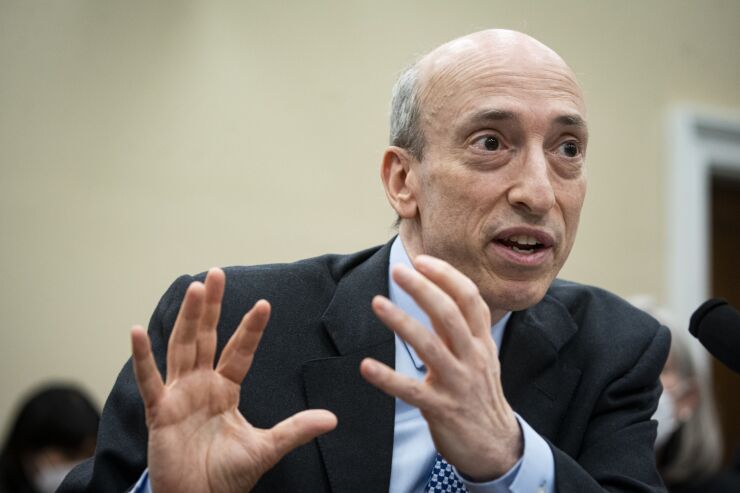
Wall Street's top regulator says
Regulators must grapple with challenges posed by
"AI may heighten financial fragility as it could promote herding with individual actors making similar decisions because they are getting the same signal from a base model or data aggregator," he said in remarks prepared for a speech on Monday before the National Press Club in Washington. "While current model risk management guidance — generally written prior to this new wave of data analytics — will need to be updated, it will not be sufficient."
Gensler, who previously taught classes at the Massachusetts Institute of Technology, has frequently discussed the impact of AI on finance since taking the helm of the SEC in 2021. However, he said Monday that the issues have taken on a new importance with recent advances in the tools, which he called "the most transformative technology of our time."
On a more micro level, companies need to be aware of how their use of AI may affect compliance with securities rules, he said. Whether it is used for financial fraud, juicing corporate returns or steering investors toward specific products, the SEC will be on the lookout, Gensler said.
In particular, publicly traded companies should be wary of misleading investors through their corporate statements and disclosures about the risks and opportunities AI might bring, he said. He added that the SEC's investigators could benefit from using more AI in their surveillance, analysis and enforcement.
"For the SEC, the challenge here is to promote competitive, efficient markets in the face of what could be dominant base layers at the center of the capital markets," Gensler said. "I believe we closely have to assess this so that we can continue to promote competition, transparency and fair access to markets."
Financial advisers and brokerages are also facing the prospect of a crackdown on conflicts of interest in using AI to steer clients toward products, he said. The SEC is planning to begin considering new rules on the issues as soon as this fall.
"When communications, product offerings and pricing can be narrowly targeted efficiently to each of us, producers are more able to find each individual's maximum willingness to pay a price or purchase a product," he said.
More broadly, AI's use in business and society is under intense scrutiny across the federal government.
The Federal Trade Commission has opened an investigation into OpenAI's ChatGPT bot's impact on consumer data privacy. The startup is backed by Microsoft.






